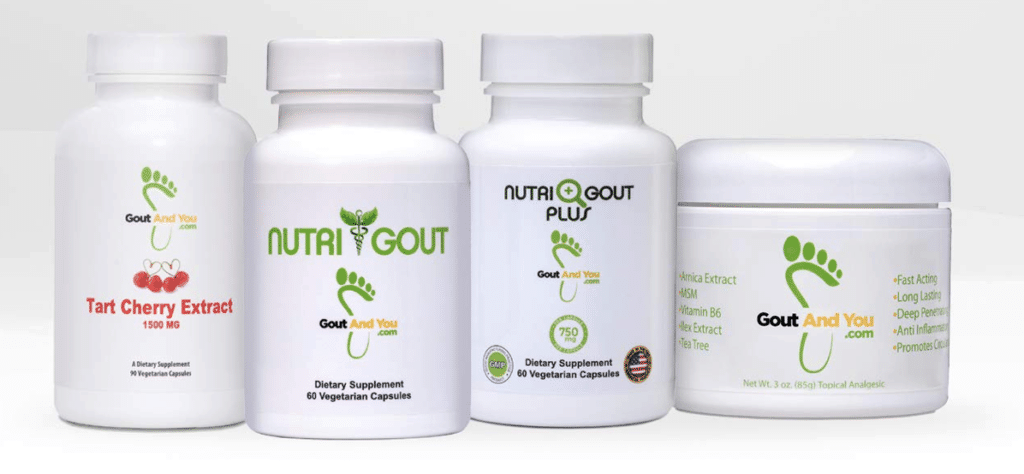Is the vegetarian diet really beneficial for gout sufferers? In this article, we’ll describe what the diet is all about and find out whether it’s suitable for people who suffer from gout.
Vegetarianism Defined
Vegetarianism is the practice of avoiding meat. The diet mainly consists of fruits, vegetables, healthy fats, grains, and proteins. Under the vegetarian diet are more types of diets which can eliminate the following food items: eggs, fish, dairy, and other animal-derived products.
Vegetarian and Vegan Diet: What’s the Difference?
Don’t confuse vegan as a shortened term for vegetarian. The vegan diet is a type of vegetarian diet which eliminates all types of animal-derived products from their diet. Some even go as far as eliminating it from their lifestyle so vegans may avoid products which is made from animals or have been tested on animals.
What the Vegetarian Diet Does for Gout
There are several reasons why people do the vegetarian diet. It can be for religious reasons, ethical reasons, or health reasons. Since we’re talking about how gout relates to this diet, we’ll be focusing more on how vegetarianism can benefit your condition.
We all know that gout is a result of too much uric acid. Uric acid is a byproduct of purines which is found in both animal-based food and plant-based foods. The only difference between the two is how they affect the body. Purines found in certain meats, organ meats, and seafood are the top suspected culprits for gout attacks and avoiding these food items can greatly reduce your uric acid levels.
On the other hand, there are studies showing that plant-based purines are actually not as harmful to gout sufferers as animal food purines are. For example, nutrient-dense food items such as leafy greens, beans, and mushrooms often have high purine content but they’re also known to have protective properties including vitamin C, fiber, folate, and phytochemicals.
Researchers suggest that the nutrients from most plant-based foods remove the negative effects of purine. A vegetarian diet is also known to be alkalizing, the opposite of gout which is a condition defined by excess acidity in the body. In addition, those who ate more alkaline-rich foods found it easier to excrete uric acid compared to those with an acidic diet.
In one of the studies, they let the participants try two diets (the standard Western diet and vegetarian diet) to see if it would make a difference in their uric acid levels. By the end of the experiment, they found that switching to a vegetarian diet had lowered their uric acid levels by 93%. This includes vegetarians of all types, including the ones who consume fish, dairy, and eggs.
Another experiment had six out of seven patients were immediately taken to the hospital after eating a meal that was mostly meat (This was an experiment of course). They found that even one high-meat meal was enough to raise uric acid to very high levels.
The good news is that you don’t have to completely avoid all types of meat or animal products. With the vegetarian diet, you get to keep your favorite staples such as dairy and eggs. Special mention to dairy since milk has been known to help the body excrete uric acid more efficiently.
And, if you’d like more flexibility, you can always start by cutting all meat except for fish. There’s really no hard-fast rules. In fact, there’s such a thing as flexitarian where you eat mostly plant-based foods while having the occasional meat, fish, or poultry.
Healthy is In: The Benefits of a Vegetarian Diet
Long gone are the days when people would think you’re weird for not eating meat. More are turning to the plant-based diet and it’s become easier to access vegetarian-friendly options at the supermarket. Even restaurant have their own special options for vegetarians. No one wants to turn a potential customer away. And with vegetarianism becoming mainstream, business owners have smartened up by giving customers what they want.
There are many benefits of a vegetarian diet. I couldn’t possibly list all of them here but I’ll list the ones that are highly relevant to you as a gout sufferer.
- The fruits and vegetables you consume in a vegetarian diet possess strong antioxidants which protect against certain types of cancer.
- It reduces saturated fats which is often the root cause of most health problems today.
- It promotes better bowel movement thanks to the high fiber intake.
- The potassium content in this diet helps your kidneys to eliminate toxins more efficiently.
- It’s rich in vitamin C which is a very strong antioxidant known to reduce the concentration of uric acid in the blood.
- It has a rich selection of protein such as beans, nuts, and soy.
- It reduces your risk for cholesterol, arthritis, type 2 diabetes, breast cancer, prostate cancer, colon cancer, cataracts, macular degeneration, and osteoporosis.
- It helps you reduce weight since you’re cutting out most of the unhealthy food items. Vegetarian food also has a lot more fiber which helps keep you feel full longer.
- It reduces your risk for acquiring fatal diseases related to animals such as salmonella, e-coli, and mad cow disease.
- It reduces your exposure to hormones which is something industrial farms inject into their animals to make them grow faster, look bigger, etc.
- It reduces your exposure to antibiotics which can affect your gut. Gut health is important for maintaining a strong immune system.
- It improves your energy. It takes less work for your body to digest plant-based foods than it is to process meat. As a result, you feel better and become more energetic.
As you can see, the vegetarian diet has a lot of good things to offer to our bodies. It truly helps you live a fuller, longer life. It’s known that vegetarians live longer than their meat-eating counterparts.
Lots of factors come into play here; it’s not just diet. Eating mostly plants allows you show respect to your body. So aside from avoiding meat, you’re also abstaining from other habits that could cut your life shorter such as smoking, drinking, eating junk food, etc.
Transitioning into the Vegetarian Diet
If you’re thinking of becoming a vegetarian, here are some tips you should follow to make the transition much easier:
1. Increase vegetable and fruit intake
At first it will feel like you’re cutting out something huge in your life when you become vegetarian. However, it doesn’t have to be that way. You can fill the lack by adding more fruits and veggies into your diet.
2. Do more meatless days
Meatless days isn’t just for Mondays. Each week, you can try to go for more days without eating meat. See the difference in how you’ll feel.
3. Skip unhealthy processed stuff
The vegetarian diet doesn’t explicitly keep you from eating processed junk food but you want to do it anyway. Processed food is so bad, it can easily negate the positive benefits your plant-based diet has. Also try to avoid beverages high in sugar. These are also considered processed since they’re loaded with artificial sugars which will only worsen your gout.
4. Don’t forget your essential nutrients
You want to pay close attention to certain nutrients that you could be missing in your vegetarian diet. It doesn’t mean that the diet is lacking. It just means you have to look for alternatives.
Here is a list of nutrients you should be focusing on:
Protein
Protein is often the top thing that vegetarians complain about not having enough of. Make sure you make up for the lack by consuming protein-rich foods like nuts, seeds, beans and whole grains. Eggs and dairy are very great sources as well. Protein is an essential nutrient that keeps your bones, muscles, organs, and skin working well.
Iron and zinc
Iron is important for healthy red blood cells. A deficiency in it could lead you to feeling tired all the time, headaches, dizziness, and even anemia. You want to double up your consumption of iron-rich foods since the body can’t easily absorb plant-based sources for it. Foods rich in iron include lentils, nuts and seeds, grains, collard greens, potatoes, mushrooms, olives, oats, dark chocolate, and coconut, milk. You can then complement it with vitamin C-rich foods since it helps improve the absorption of iron by as much as 300%.
Omega 3
You can become deficient in omega 3 when you cut out fish and eggs completely. However, you can supplement it with omega-rich foods such as walnuts, flaxseed, hemp seeds, flaxseeds, seaweed, kidney beans, and soybeans. Also get products that’s been fortified with this nutrient as the type of omega 3 found in plant-based sources tend to be inefficient to be used by the body.
Vitamin B-12
Vitamin B-12 can only be found in animal products. You don’t want to wait for symptoms to come up; most vegetarians find out they’re actually deficient in this vitamin a little too late and they’ve already experienced severe problems. Load up on supplements for B12 or look for fortified soy products.
In Conclusion
You should consider switching to a vegetarian diet if you’re having a hard time keeping up with the dos and don’ts of a gout diet. Vegetarianism is generally healthy and it’s not hard to stick with considering there are different variations of it you can do that will fit your lifestyle.

